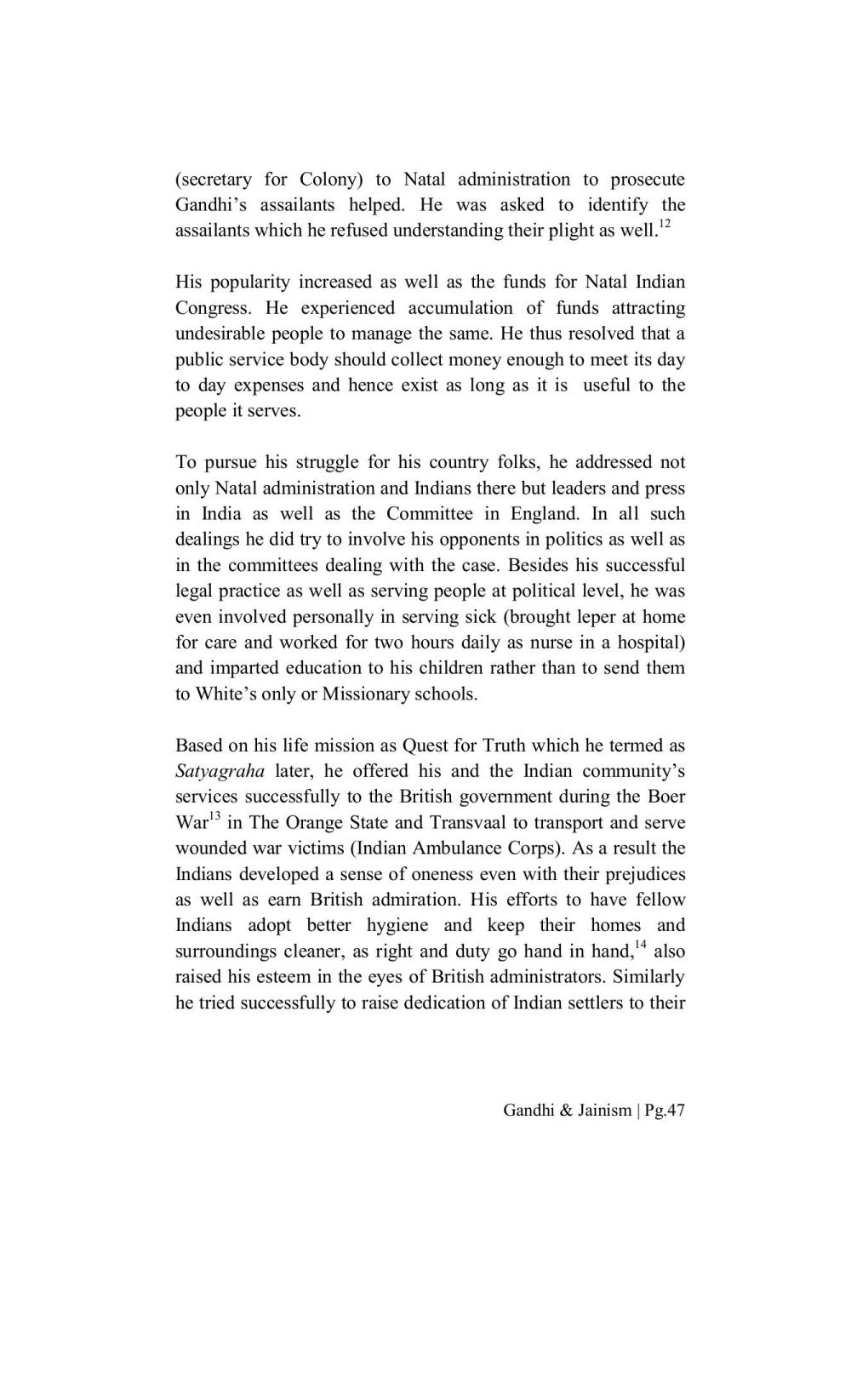________________
(secretary for Colony) to Natal administration to prosecute Gandhi's assailants helped. He was asked to identify the assailants which he refused understanding their plight as well.2
His popularity increased as well as the funds for Natal Indian Congress. He experienced accumulation of funds attracting undesirable people to manage the same. He thus resolved that a public service body should collect money enough to meet its day to day expenses and hence exist as long as it is useful to the people it serves.
To pursue his struggle for his country folks, he addressed not only Natal administration and Indians there but leaders and press in India as well as the Committee in England. In all such dealings he did try to involve his opponents in politics as well as in the committees dealing with the case. Besides his successful legal practice as well as serving people at political level, he was even involved personally in serving sick (brought leper at home for care and worked for two hours daily as nurse in a hospital) and imparted education to his children rather than to send them to White's only or Missionary schools.
Based on his life mission as Quest for Truth which he termed as Satyagraha later, he offered his and the Indian community's services successfully to the British government during the Boer War' in The Orange State and Transvaal to transport and serve wounded war victims (Indian Ambulance Corps). As a result the Indians developed a sense of oneness even with their prejudices as well as earn British admiration. His efforts to have fellow Indians adopt better hygiene and keep their homes and surroundings cleaner, as right and duty go hand in hand, also raised his esteem in the eyes of British administrators. Similarly he tried successfully to raise dedication of Indian settlers to their
Gandhi & Jainism
Pg.47




